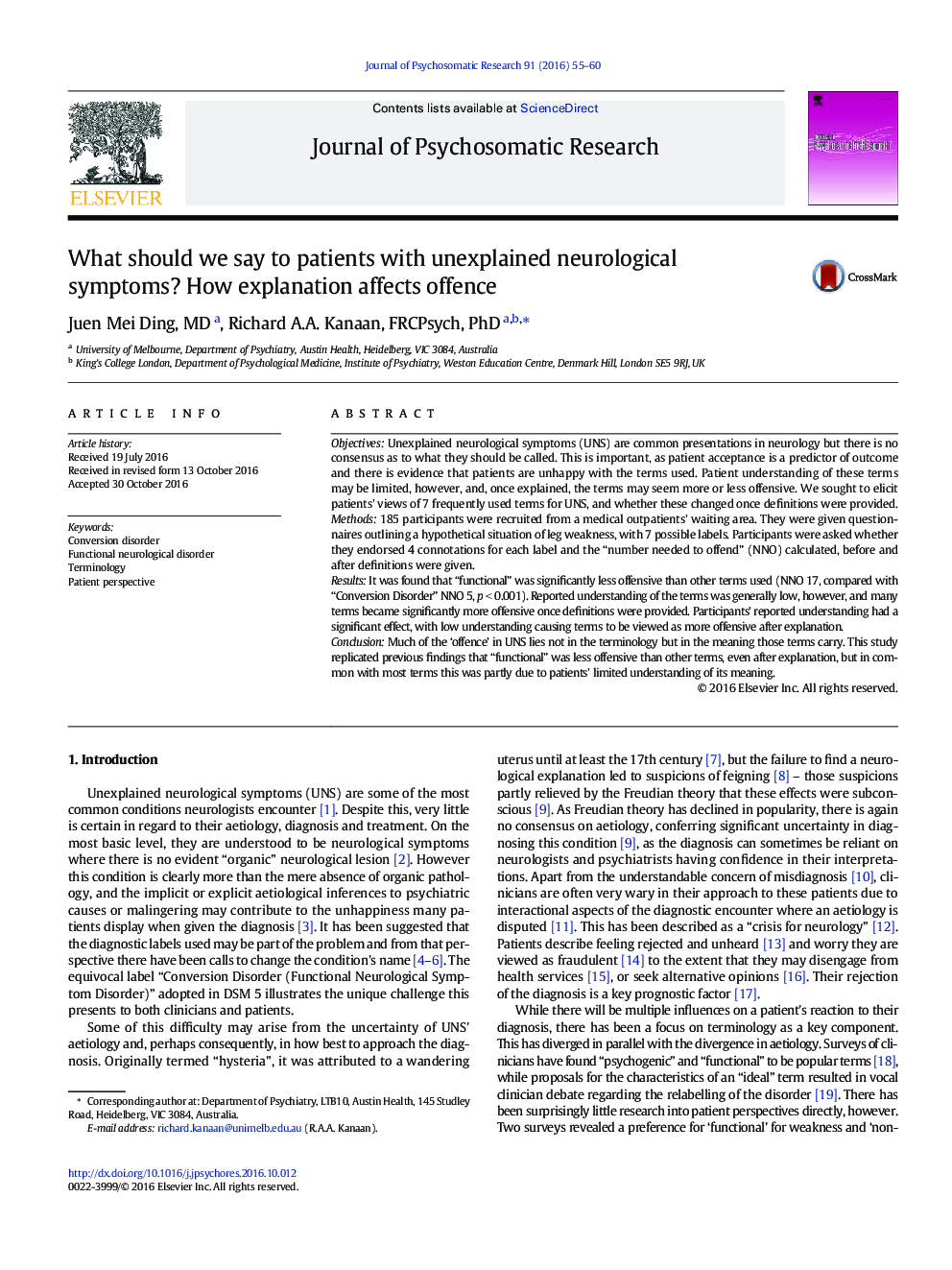| کد مقاله | کد نشریه | سال انتشار | مقاله انگلیسی | نسخه تمام متن |
|---|---|---|---|---|
| 5046103 | 1475904 | 2016 | 6 صفحه PDF | دانلود رایگان |
- Previous studies have shown that patients find “functional” to be the least offensive term, but this has not been compared to the current term of “Conversion Disorder”, nor have previous studies explored patient understanding.
- We found patients had poor understanding of the majority of terms for unexplained neurological symptoms, particularly "conversion disorder", and that defining them typically made them appear more offensive.
- “Functional” remains the least offensive term, though this may be partially attributed to poor understanding of its meaning.
ObjectivesUnexplained neurological symptoms (UNS) are common presentations in neurology but there is no consensus as to what they should be called. This is important, as patient acceptance is a predictor of outcome and there is evidence that patients are unhappy with the terms used. Patient understanding of these terms may be limited, however, and, once explained, the terms may seem more or less offensive. We sought to elicit patients' views of 7 frequently used terms for UNS, and whether these changed once definitions were provided.Methods185 participants were recruited from a medical outpatients' waiting area. They were given questionnaires outlining a hypothetical situation of leg weakness, with 7 possible labels. Participants were asked whether they endorsed 4 connotations for each label and the “number needed to offend” (NNO) calculated, before and after definitions were given.ResultsIt was found that “functional” was significantly less offensive than other terms used (NNO 17, compared with “Conversion Disorder” NNO 5, p < 0.001). Reported understanding of the terms was generally low, however, and many terms became significantly more offensive once definitions were provided. Participants' reported understanding had a significant effect, with low understanding causing terms to be viewed as more offensive after explanation.ConclusionMuch of the 'offence' in UNS lies not in the terminology but in the meaning those terms carry. This study replicated previous findings that “functional” was less offensive than other terms, even after explanation, but in common with most terms this was partly due to patients' limited understanding of its meaning.
Journal: Journal of Psychosomatic Research - Volume 91, December 2016, Pages 55-60
